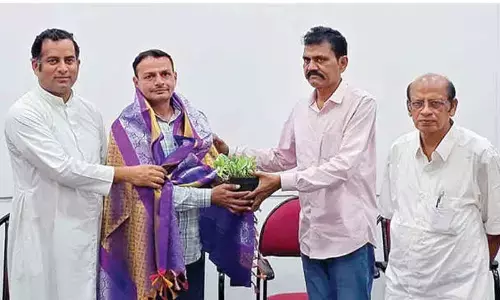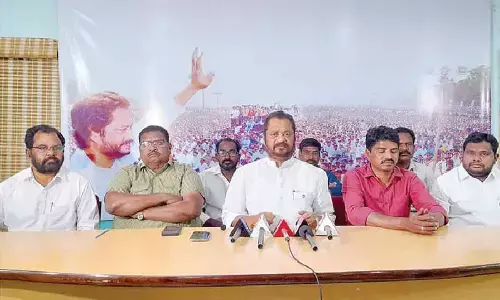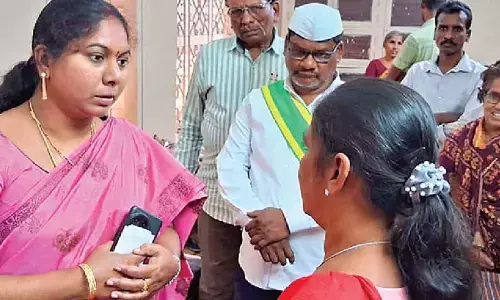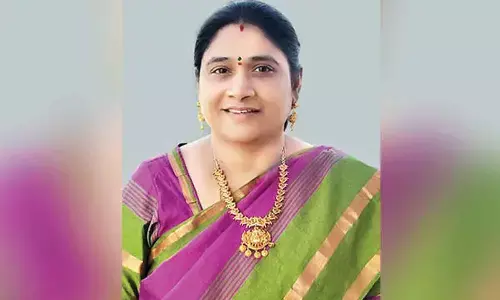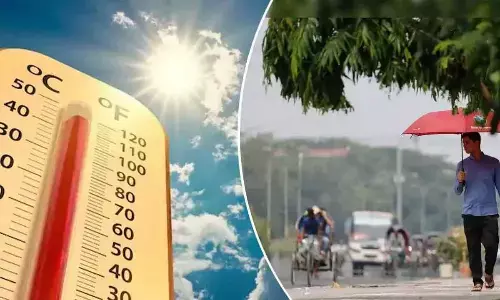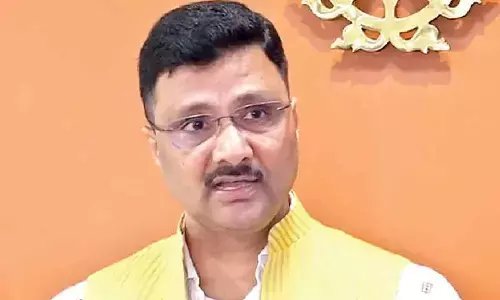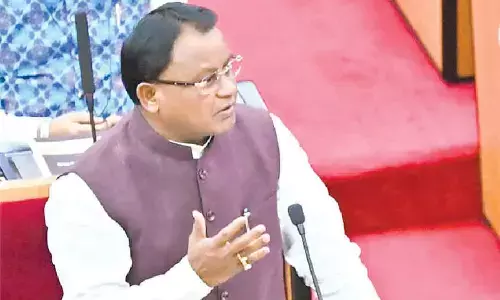Can't prevent rape? At least, don't trivialise it
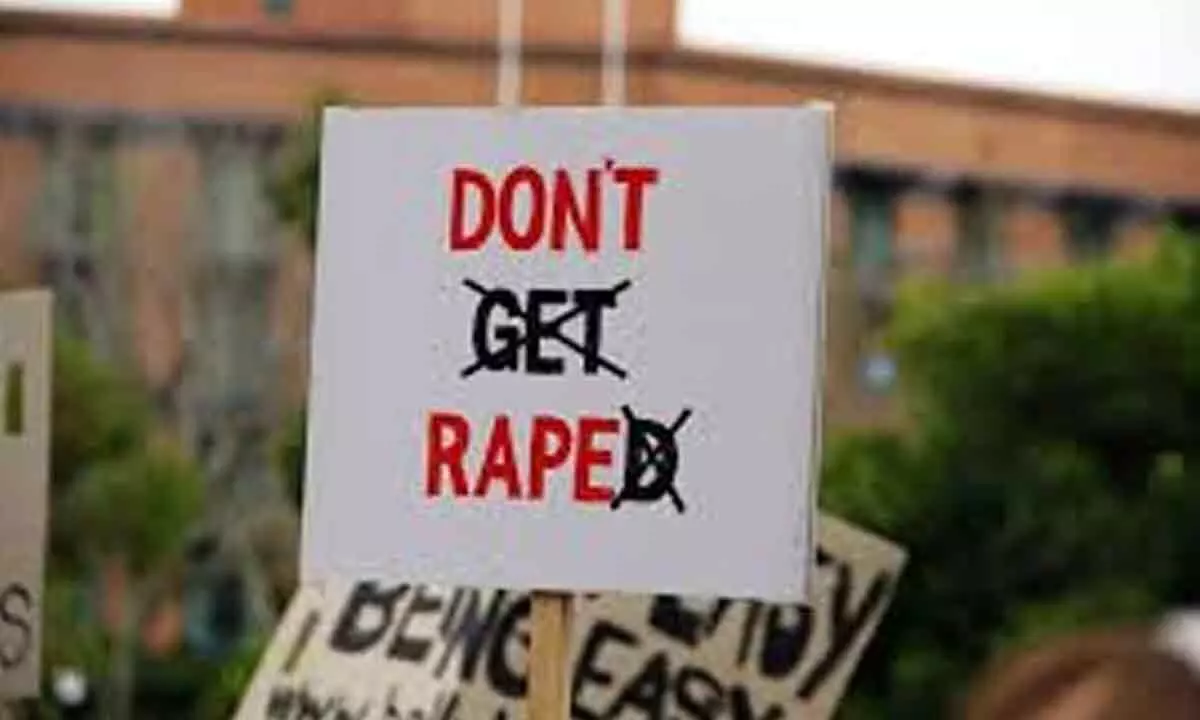
Representational Image
Rape culture is an environment in which rape is prevalent and in which sexual violence is normalised and excused in the media and popular culture.
Rape culture is an environment in which rape is prevalent and in which sexual violence is normalised and excused in the media and popular culture. But, do we realise that the rape culture is perpetuated through the use of misogynistic language, the objectification of women's bodies, and the glamorisation of sexual violence, thereby creating a society that disregards women's rights and safety.
If a government or a society wants to prevent rapes or even reduce it, it is not enough that one makes stringent laws. All the other things mentioned above must be corrected. One cannot wish away crimes or blame the Opposition for those police station statistics. Andhra Pradesh is galloping towards that shameful record of, perhaps, the atrocities capital (against women) of the country.
If we unbiasedly consider some examples of the rape culture we can identify our fault lines easily. Several studies have established that societies, particularly in countries like ours, would not mind blaming the victim – "She asked for it." Trivialising sexual assault is also common.
At least 87 rape cases were taking place every day in the country in 2019, according to the records of the National Crime Records Bureau. It is the fourth most common crime against women (77) according to a 2020 report. Of course, it is anybody's guess whether all rapes are reported and registered in the country.
"Boys will be boys" is how some politicians of the North react often to the news while blaming the girls for the ills. In Andhra Pradesh, the trend is to blame political rivals. So, according to the TDP leadership, it is the YSRCP leaders who are responsible for the rapes and atrocities while the Chief Minister, Y S Jagan Mohan Reddy, himself alleged the TDP leaders as perpetrators in retaliation. The Home Minister, however, sought to chide the mothers for their "upbringing."
In addition, the very language is riddled with sexually explicit comments and it has become an established norms with even films and TV shows allowing the lewd and loud scrpts. Girls and women, in general, are afraid of reporting the harassment or crimes for obvious reasons as the accusing fingers in the households and the society would be pointing towards their "behaviour" first.
Another issue that bothers women is the low sensitivity levels of our law and order forces despite the claims to the contrary. A victim is always judged first from her dress, state of mind, motive and history. The company that she keeps is also questioned.
Southern Connecticut State University in its compilation has recorded that gratuitous gendered violence in movies and television has a significant role in such assaults against women. It is not just in India, but even in the West, it was always believed that only promiscuous women get raped. Here too men were never 'schooled'.
Research suggests that people blame victims only to confirm their own invulnerability to the risk. It is like saying "I am different from her. This does not happen to me because I don't wear clothes like her or do what she did."
Thus, the ground for the victim is queered and she either refuses to admit the abuse or discourages herself from reporting it. The perpetrator of the crime thus is encouraged to continue abusing the women as he feels he is not answerable. No one looks at the eyes of the victim to understand the pain and the agony or look into the eyes of the predator hungrily eyeing his prey.
Even in cases of domestic violence where husbands often tend to rape their wives, it is the wife who is blamed if she ever complains. The maximum concession that a woman secures here is thus: "She must have provoked him or not cooperated. After all he is the husband." A part of the blame is attached to her while, in fact, the abuser "may" also be blamed.
Do we ever understand that the abuser always makes a careful, deliberate and conscious choice to rape and makes his moves? He never feels that he will be hurting her. Rather, he feels that he is entitled to do so because he is a man. How very animal?
Against this backdrop it is disgusting to note our leaders speak what they speak in such cases. Can they avoid using language that objectifies or degrades women? Will the society speak out if it hears someone getting offensive in this regard? Can we be supportive of the women who come forward to admit abuse? Isn't women's space shrinking despite the "growing civilization"? What are we going to do about it?
Turning our attention to AP again, is it not strange that the TDP blames free availability of 'ganja' in the State for the regular rapes being reported? Don't blame substance abuse for the crimes. Blame the person who makes that choice to commit rapes.
Let not the abused feel sorry or convince themselves that the abuser "after all loves them". Love has no room for rape or any oher assault.
In domestic rapes within the marriage system, a woman is silenced if she has no support system outside the relationship and she can't desert her homes.
Those in power and out of it should keep all these factors and much more in mind in responding to such crimes. It is crime-enough that you can not prevent abuse of women.
Why trivialize it?


